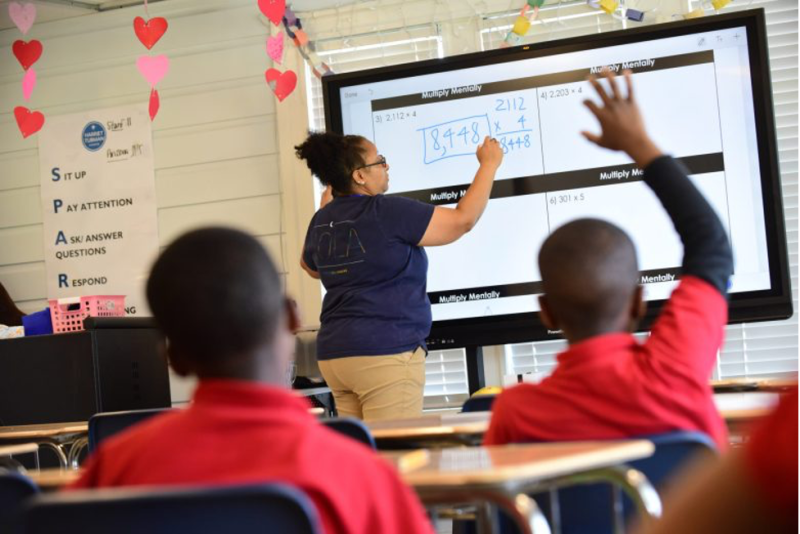A large body of research shows that Black students are likely to learn more when they are taught by a Black teacher. Quantitative researchers have found better results for Black students taught by Black teachers in Texas, Florida, Missouri, Tennessee and North Carolina. It’s one of the reasons that many education advocates have called for diversifying the teacher workforce, which is overwhelmingly white.
But a large study of a million elementary school students and nearly 35,000 teachers in North Carolina found that Black teachers aren’t always better for Black students. The race of the teacher didn’t affect the academic achievement of Black students in third through fifth grade across eight school years, from 2009-10 to 2017-18. Almost a quarter of the students were Black and they did just as well on their annual reading and math tests with a white teacher as they did with a Black one.
Instead, what mattered was where a teacher went to college. Both Black and white teachers trained at an historically black college or university (HBCU) helped Black students do better in math. Almost one out of 10 teachers in North Carolina graduated from an HBCU. Though not a large number, a quarter of these HBCU-trained teachers were white. During a year that a Black elementary school student had one of these HBCU-trained teachers, his or her math scores were higher. In the following year, if their teacher was trained elsewhere, these same Black students tended to post lower math scores.
“I thought that this has to be wrong somehow because so many papers have found an effect for a Black-teacher Black-student match,” said Lavar Edmonds, a graduate student in economics and education at Stanford University, who conducted the analysis. Edmonds ran the numbers in different ways “over and over again” and kept getting the same results. “I only note a same-race teacher effect for Black students when that teacher went to an HBCU.”
Previous studies weren’t necessarily wrong, but differences in the data can yield different results. For example, one earlier study focused on long-term outcomes, instead of test scores, and found higher college going rates for Black students taught by Black teachers. Edmonds’s study, “Role Models Revisited: HBCUs, Same Race Teacher Effects and Black Student Achievement,” hasn’t been peer reviewed or published in an academic journal, but an August 2022 draft was publicly posted. Bolstering Edmonds’s results is another unpublished national study of 18,000 students, presented at a September 2022 conference of the Society for Research on Educational Effectiveness. It also failed to find higher achievement in math, reading or science for students taught by a teacher of the same race.


